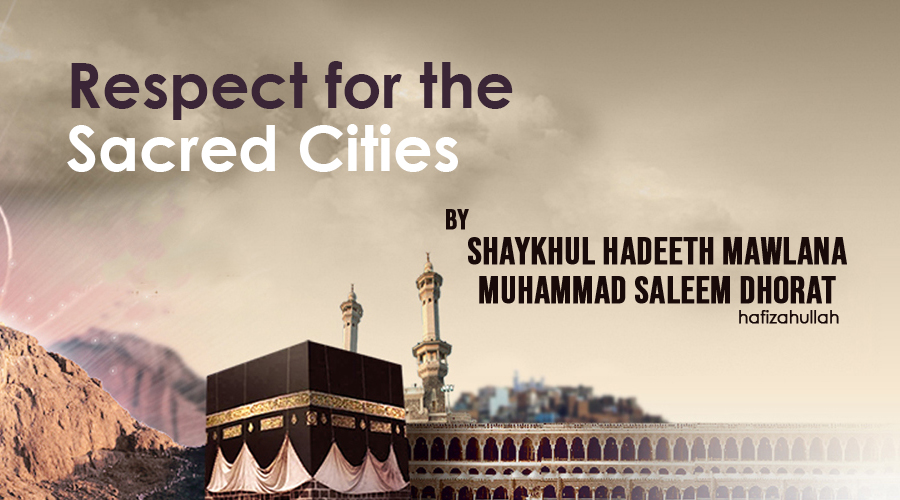
First Ten Days Of Zil Hijjah
Allāh سُبْحَانَهُ وَ تَعَالَى has taken an oath of ten nights in Sūrah Al-Fajr. According to the majority of the commentators of Qur’ān, the nights are those of the (first) ten days of Dhul Ḥijjah. ‘Abdullāh Ibn ‘Abbās رضي الله عنه related that the Prophet صَلَّى اللّٰهُ عَلَيْهِ وَسَلَّمَ said, “Good deeds performed on other days are not superior to those performed on these (first ten days of Dhul Ḥijjah).” The Companions رضي الله عنهم inquired, “Not even jihād?” He replied, “Not even jihād, except for that person who goes out putting himself and his wealth in danger and does not return with anything.” (Al- Bukhārī)
‘Abdullah Ibn ‘Abbās رضي الله عنه narrated that Rasūlullāh صلى الله عليه وسلم said, “On no other days are good deeds more liked by Allāh than on these ten days (i.e. The first ten days of Dhul Ḥijjah).”
The Ṣahābah رضي الله عنهم asked, “ O Rasūlullāh صلى الله عليه وسلم Not even jihād in the Way of Allāh?” Rasūlullāh صلى الله عليه وسلم replied, “Not even jihād in the Way of Allāh, except for that person who goes out with his life and wealth and does not return with anything.” (Abū Dāwūd, At-Tirmidhī, Ibn Mājah)
Abū Hurayrah رضي الله عنه related that Rasūlullāh صلى الله عليه وسلم said, “On no days is the worship of Allāh desired more than in the (first) ten days of Dhul Ḥijjah. The fast of each of these days is equal to the fast of a whole year, and the worship of each of these nights is equal to the worship of Laylatul Qadr.” (At-Tirmidhi, Ibn Mājah)
The mother of the believers, Ḥafṣah رضی اللہ عنھا reports that Rasūlullāh صلى الله عليه وسلم used to fast the (first) nine days of Dhul Ḥijjah. (Abū Dāwūd, An-Nasā’ī, Aḥmad)
‘Abdullah Ibn ‘Umar رضي الله عنه related that Rasūlullāh صلى الله عليه وسلم said, “No days are as weighty with Allāh and so liked by Him for good deeds than the first ten days of Dhul Ḥijjah. So on these days increasingly read Subḥānallāh, Lā ilāha illallāh, Alḥamdulillāh and Allāhu Akbar.” (Aḥmad)
VIRTUES OF THE DAY OF ‘ARAFAH
(9th Dhul Ḥijjah)
‘Ā’ishah رضی اللہ عنھا reports that Rasūlullāh صلى الله عليه وسلم said, “There is no day in which Allāh سُبْحَانَهُ وَ تَعَالَى sets free more souls from the fire of hell than on the day of ‘Arafāt. And on that day Allāh draws near to the earth and by way of exhibiting His Pride remarks to the angels, ‘What is the desire of these (servants of mine)?” (Muslim)
Ṭalḥah رضي الله عنه reports that Rasūlullāh صلى الله عليه وسلم said, “Apart from the day of the Battle of Badr there is no day on which the Shayṭān is seen to be more humiliated, more rejected, more depressed and more infuriated, than on the day of ‘Arafāt, and indeed all this is only because of beholding the abundance of descending mercy (on the day) and Allāh’s forgiveness of the great sins of the servants.” (Mishkāt)
Abū Qatādah Al-Anṣārī رضي الله عنه narrated that Rasūlullāh صلى الله عليه وسلم was asked about the fast on the day of ‘Arafāt. He said, “It compensates for the (minor) sins of the past and the coming year.” (Muslim, At- Tirmidhī, Ibn Mājah)
NIGHT OF ‘ĪD-AL-AḌḤĀ
The nights of both ‘Īds are described in the Ḥadīth as amongst the great and sacred nights in the Muslim calendar. To remain awake on the nights of ‘Īd and perform ‘ibādah is a source of great virtue and reward.
Abū ‘Umārah رضي الله عنه related that ‘Ā’ishah رضي الله عنها reports that Rasūlullāh صلى الله عليه وسلم said, “Whosoever stays awake and performs ‘ibādah (worship) on the nights of the two ‘Īds, with hope for abundant reward (from Allāh سُبْحَانَهُ وَ تَعَالَى), his heart will not die on the day (i.e. Qiyāmah) when all hearts will be dead.” (At-Targhīb)
Mu‘ādh Ibn Jabal رضي الله عنه relates that Rasūlullāh صلى الله عليه وسلم said, “Jannat is wājib (incumbent) for those who stay awake with the intention of making ‘ibādah on the following nights: 8th, 9th and 10th of Dhul Ḥijjah, the night of ‘Īd-al-Fiṭr and the night of the 15th of Sha‘bān.” (At-Targhīb)
VIRTUES OF UḌḤIYAH (QURBĀNĪ)
Rasūlullāh صلى الله عليه وسلم said, “There is nothing dearer to Allāh during the days of Uḍḥiyah than the sacrificing of animals. The sacrificed animal shall come on the Day of Judgement with its horns, hair, and hooves (to be weighed). The sacrifice is accepted by Allāh before the blood reaches the ground. Therefore sacrifice with an open and happy heart.” (At-Tirmidhī, Ibn Mājah)
TAKBIRĀT OF TASHRĪQ
The Takbirāt of Tashrīq are:
“Allāhu Akbar, Allāhu Akbar, Lā ilāha illallāhu wallāhu Akbar, Allāhu Akbar, Walil lāhil ḥamd.”
Translation:
“Allāh is the Greatest, Allāh is the Greatest. There is no deity besides Allāh and Allāh is the Greatest. Allāh is the Greatest and all praises are for Allāh only.”
It is wājib for every adult Muslim to recite these Takbirāt of Tashrīq audibly once after every farḍ ṣalāh from the Fajr of 9th Dhul Ḥijjah to the ‘Aṣr of 13th Dhul Ḥijjah (i.e. a total of 23 ṣalāh).
Mas’alah: Women should not say it loudly but softly.
Mas’alah: Takbīr should be recited immediately after concluding the farḍ prayer.


